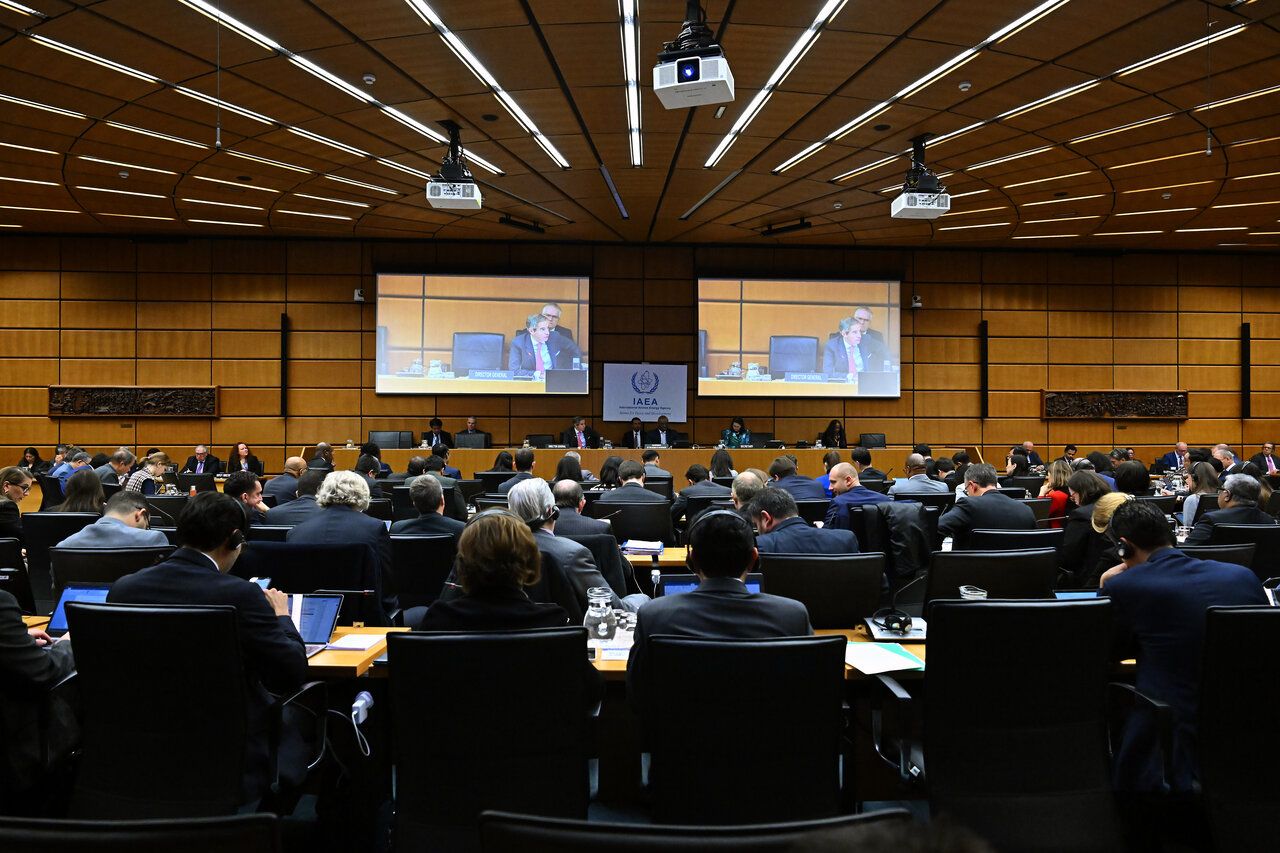Iran to deploy new advanced centrifuges in response to ‘unjust’ IAEA resolution

TEHRAN – Iran has decided to activate new advanced centrifuges, rejecting an International Atomic Energy Agency (IAEA) Board of Governors resolution that rebuked Tehran despite its offer of new concessions.
The Atomic Energy Organization of Iran (AEOI) and the Iranian Foreign Ministry released a joint statement early Friday, criticizing the IAEA's resolution as politically driven, unrealistic, and unjust.
A significant number of advanced centrifuges will be deployed in response to the unconstructive move, the statement read.
The resolution, passed by the IAEA's Board of Governors with a vote of 19 to 3 and 12 abstentions, accused Iran of “insufficient cooperation” and demanded a comprehensive report on its nuclear activities by spring 2025.
The statement added that despite taking new measures to accelerate its nuclear program, Iran will maintain its technical cooperation with the IAEA based on previous agreements.
Referring to the IAEA chief’s recent trip to Iran, the statement explained that Rafael Grossi’s meetings with senior Iranian officials and his subsequent visits to the Fordow and Natanz nuclear sites showed a solid foundation for enhanced collaboration between Iran and the nuclear agency.
It accused the UK, France, Germany, and the U.S. of advancing political agendas under the guise of nuclear concerns, especially in light of their past failures to uphold agreements like the Joint Comprehensive Plan of Action (JCPOA).
The JCPOA was established in 2015 between Iran and the P5+1 countries. It imposed restrictions on Iran's nuclear activities in return for the termination of Western sanctions. However, the accord collapsed in 2018 when U.S. President Donald Trump decided to withdraw the United States from the agreement and reimpose sanctions on Iran.
‘Considerable boost in uranium enrichment capacity’
In a televised interview on Friday, AEOI spokesperson Behrouz Kamalvandi confirmed the immediate implementation of "compensatory actions," including a substantial increase in uranium enrichment capacity alongside the accelerated development of advanced centrifuge technology.
“We will significantly increase our enrichment capacity, deploy various advanced machines, and enhance the speed of industrial research and development for each machine,” he added.
Tehran had reportedly agreed not to expand its stock of uranium enriched to up to 60% purity during Grossi’s visit to Iran. Kamalvandi said the agreement is no longer viable, as Iran had only taken up the offer contingent upon the fact that the IAEA does not pass a censure against the country.
Leave a Comment